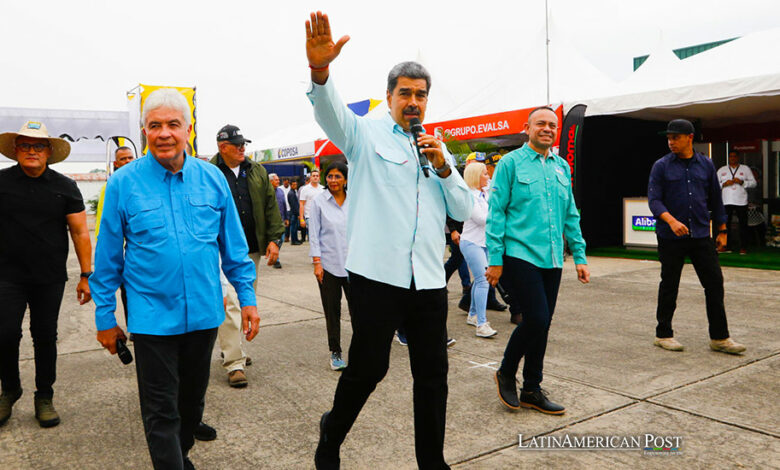U.S. Reinstates Venezuela Sanctions Amid Unmet Election Promises

The Biden administration announced it would not renew a general license that allowed for eased sanctions on Venezuela’s oil industry, citing President Nicolas Maduro’s failure to honor election-related commitments, marking a significant shift in U.S.-Venezuela relations.
The Biden administration has decided to take a step back from its previous stance of engagement with Venezuela by not renewing a general license that had temporarily eased sanctions on the country’s crucial oil sector. This move directly responds to Venezuelan President Nicolas Maduro’s failure to fulfill commitments related to election reforms, which were part of a U.S.-backed deal aimed at fostering democratic processes in the beleaguered South American nation.
The United States first imposed stringent sanctions on Venezuela’s oil industry in 2019 under the Trump administration, following Maduro’s controversial reelection, which the U.S. and other Western governments did not recognize. These sanctions were somewhat relaxed in October last year, following a preliminary agreement between Maduro’s government and the Venezuelan opposition, which was brokered with U.S. support. The deal was intended to lead to significant electoral reforms and better conditions for political participation.
However, according to senior U.S. officials, while some terms of the deal were met, crucial promises, particularly regarding the opposition’s freedom to run a candidate of their choice against Maduro in the upcoming July 28 presidential election, still needed to be fulfilled. This has led to the U.S. administration’s decision to let the sanctions relief expire just after midnight EDT, effectively reinstating previous punitive measures aimed at Venezuela’s oil exports.
Implications of the Decision
Allowing the sanctions to snap back into place reflects a complex interplay of democratic principles, geopolitical strategy, and economic considerations. The U.S. State Department spokesperson Matthew Miller highlighted concerns that Maduro’s administration had prevented the democratic opposition from registering their preferred candidate, engaged in harassment and intimidation of political opponents, and unjustly detained numerous political actors and members of civil society.
This move signals a significant policy shift from the Biden administration’s earlier attempts to engage with Maduro through diplomatic channels and economic incentives. It suggests a return to a more aggressive stance reminiscent of the “maximum pressure” campaign of the previous U.S. administration, albeit with some nuances. The U.S. has clarified that this reinstatement of sanctions does not preclude the possibility of Venezuela holding competitive and inclusive elections, indicating that the door remains open for further negotiation.
The reinstatement of sanctions on Venezuela could have broader implications for Latin America, particularly regarding economic and political stability. Venezuela’s economy, heavily reliant on oil exports, will likely face increased pressures, which could exacerbate the ongoing humanitarian crisis and fuel further migration from the country. This, in turn, could affect regional stability and potentially increase the flow of Venezuelan migrants to neighboring countries and the U.S.-Mexico border—a significant concern for the Biden administration as it gears up for the November reelection campaign.
Venezuelan Response and Global Oil Market
In response to the U.S. announcement, Venezuelan officials, including Oil Minister Pedro Tellechea, have expressed readiness to withstand renewed sanctions, asserting that Venezuela is open for business and prepared to maintain the stability of global oil markets. This claim comes as Venezuela’s oil exports saw a spike in March, with buyers rushing to complete purchases ahead of the sanctions’ reinstatement.
Also read: Diplomatic Tensions Surge: Venezuela Shuts Embassy in Ecuador
The withdrawal of the general license and the return to stricter sanctions mark a critical juncture in U.S.-Venezuela relations. It underscores the challenges of balancing diplomatic engagement with enforcing democratic principles internationally. As the situation evolves, the international community, particularly other Latin American countries, will closely watch the impact of these renewed sanctions on Venezuela’s political landscape and its broader implications for regional stability and global oil markets.
The Biden administration is taking a calculated risk in reinstating these sanctions, hoping to leverage economic pressure to push for democratic concessions from Maduro’s regime. However, whether this strategy will lead to meaningful political change in Venezuela remains to be seen.




